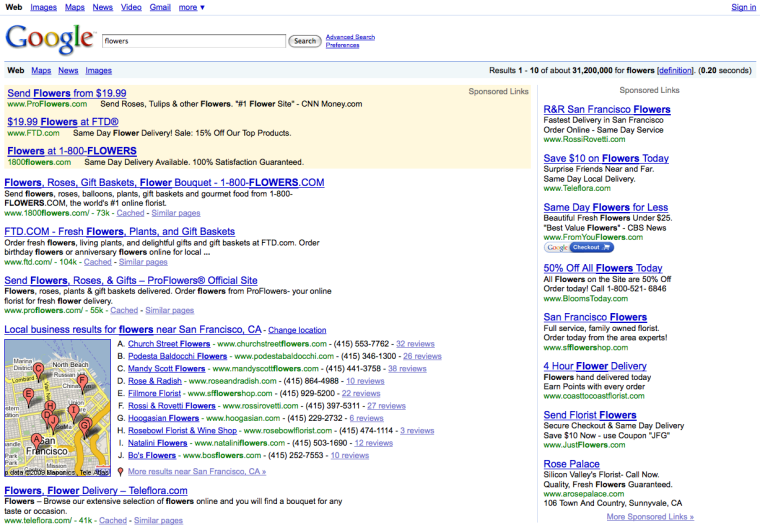If you thought Google was reading your mind before, it's going to seem even more psychic now that the company is fine tuning its search engine with deeper, more intuitive results -- and not just links.
Singhal told Efrati that Google wants to give users more relevant results, using something called "semantic search" to try to sort out what you really mean when you're typing in keywords.
This "next generation of search" will last several years, but one of the main components of it is giving searchers the answers they want without having to leave the results page. The more time people spend on Google searches, the more potential for advertising revenue.
For instance, right now, searching for a singer or band brings up concert dates for that performer, rather than just providing links to that person. It's also given searchers the option to see "personal results" from others in their Google+ circles, as well as instant results as users type in their search. Already at the end of a search page, users can see related searches that might lead them more specifically to what they're looking for.
On a Google+ post, Singhal explained a little more about what led to the evolution of search:
"Let me just say that every day, we're improving our ability to give you the best answers to your questions as quickly as possible. In doing so, we convert raw data into knowledge for millions of users around the world. But our ability to deliver this experience is a function of our understanding your question and also truly understanding all the data that's out there. And right now, our understanding is pretty darn limited."
Singhal revealed that for two years, "Google has amassed hundreds of millions of "entities" -- "people, places and things" -- that in semantic search can bring up executives, locations and products when someone searches for a specific company, for example. In his post, he specifically mentioned Freebase, a 2010 acquisition that gave the company 12 million interconnected entities and attributes. They've grown that to now over 200 million. Keywords alone, in other words, won't be the end all, be all.
Singhal ends his post by saying, "...our initial steps towards this virtuous cycle are indeed baby steps...on a long road ahead." So, stay tuned. We'll let you know when we know more.
With 75 percent of the search engine market (Bing and Yahoo split the rest) -- which accounts for most of its $37 billion in revenue -- Google is the undisputed heavyweight champ of this arena. Nevertheless, the search giant faces stiff competition from social networks such as Facebook for consumers' time.
Check out Technolog on Facebook, and on Twitter, follow Athima Chansanchai, who is also trying to keep her head above water in the Google+ stream.
